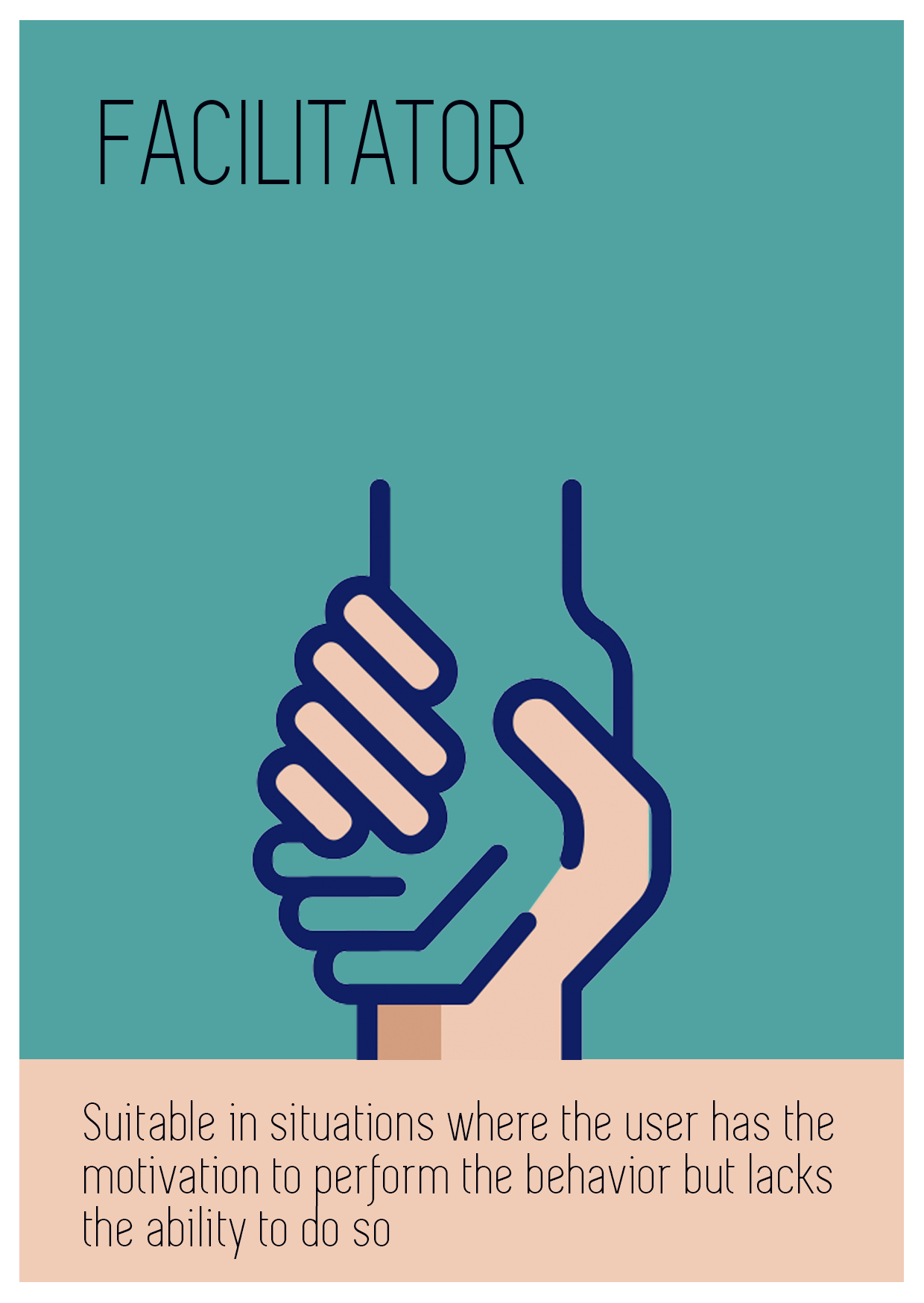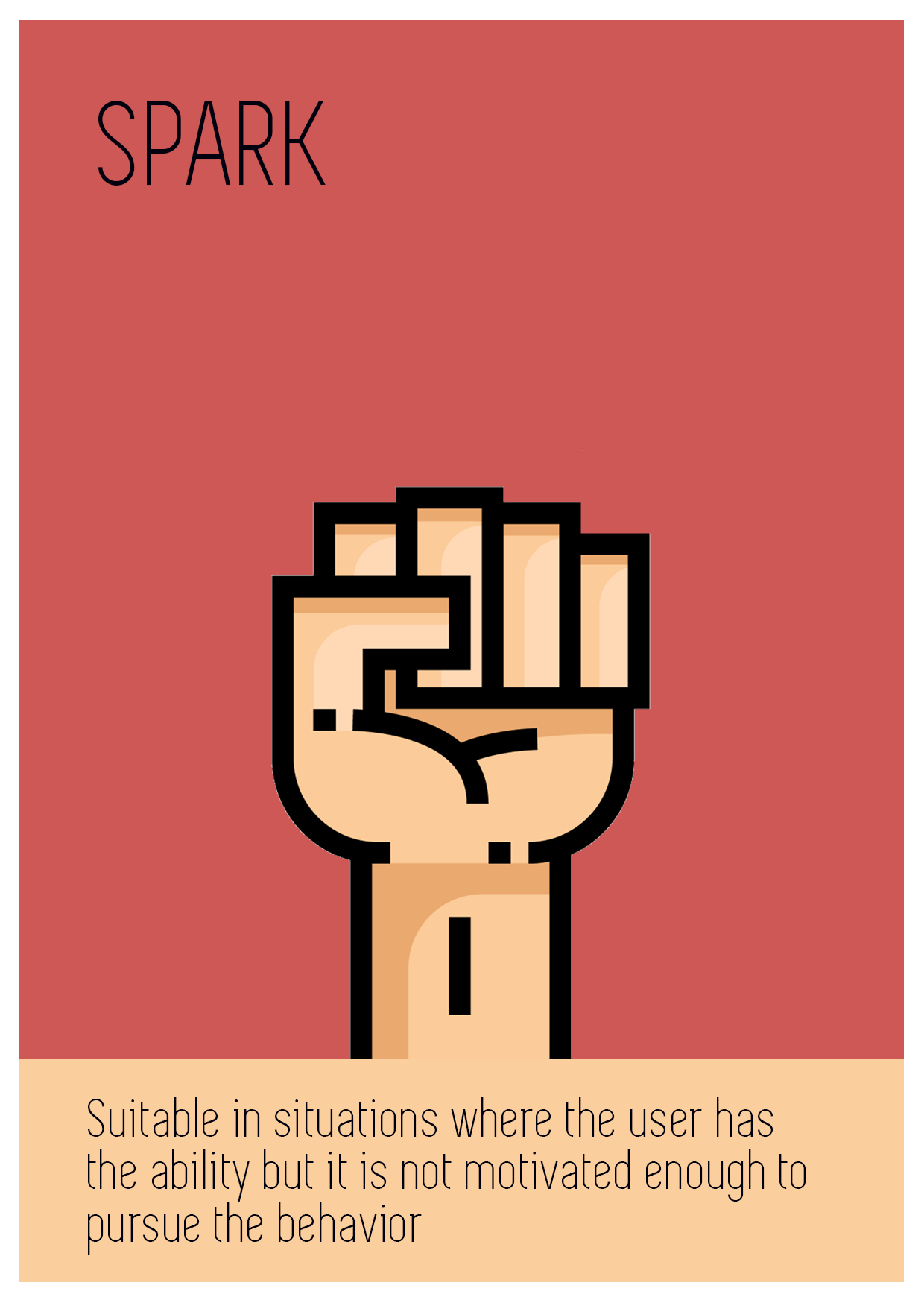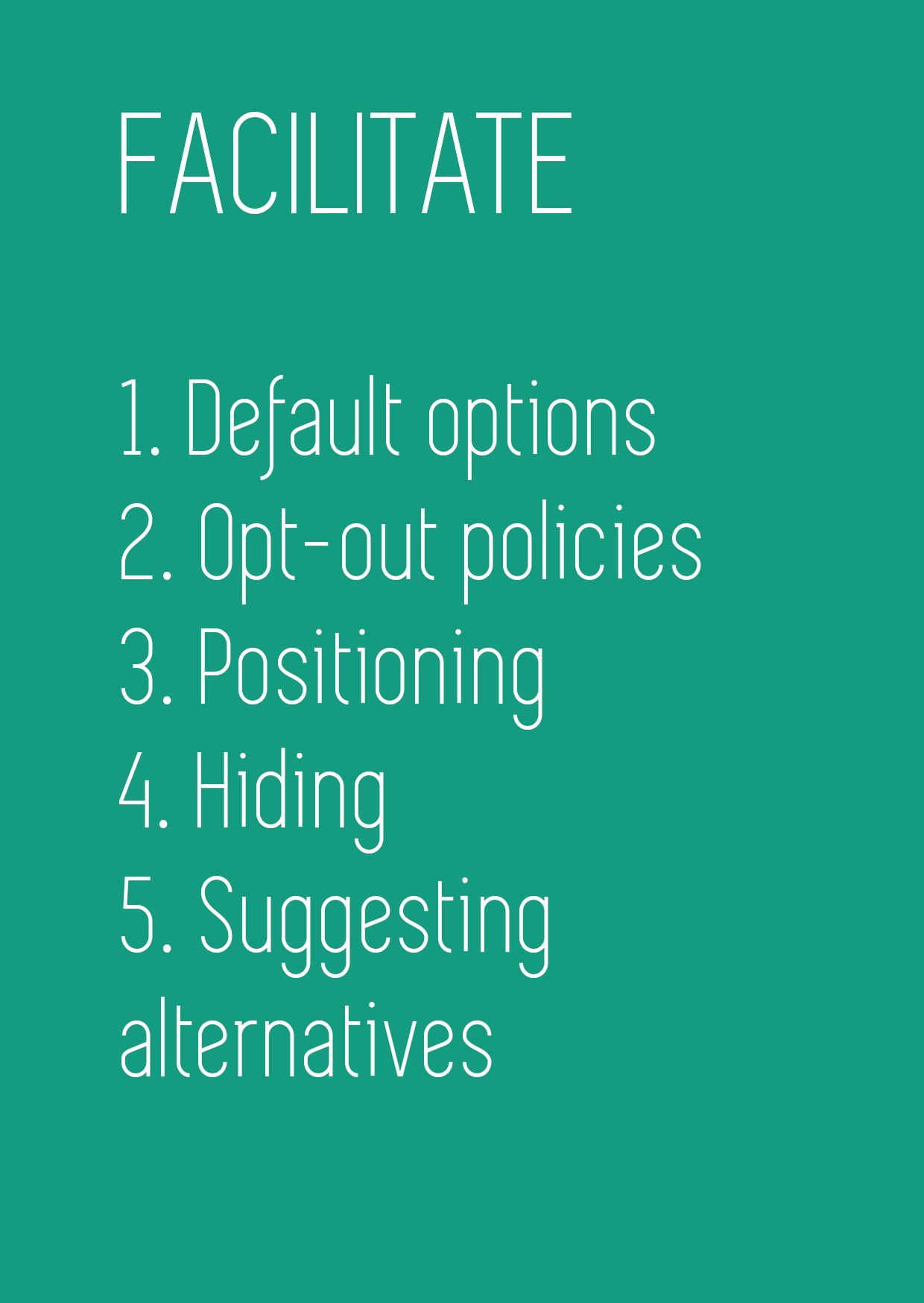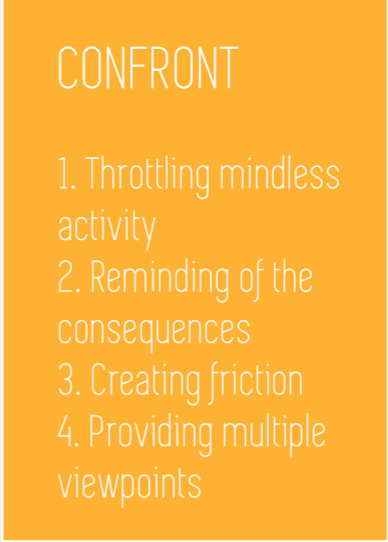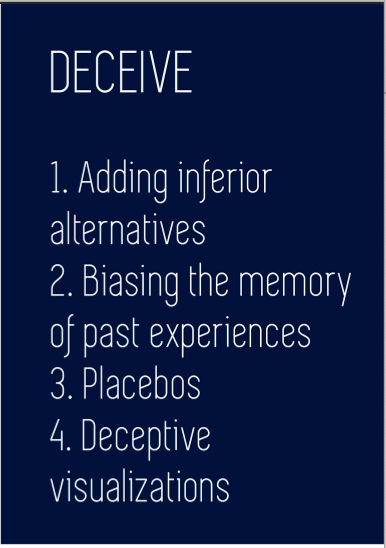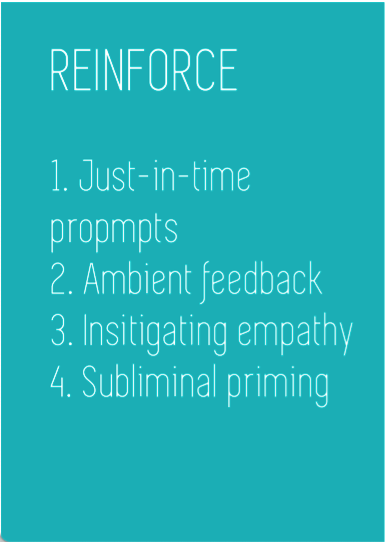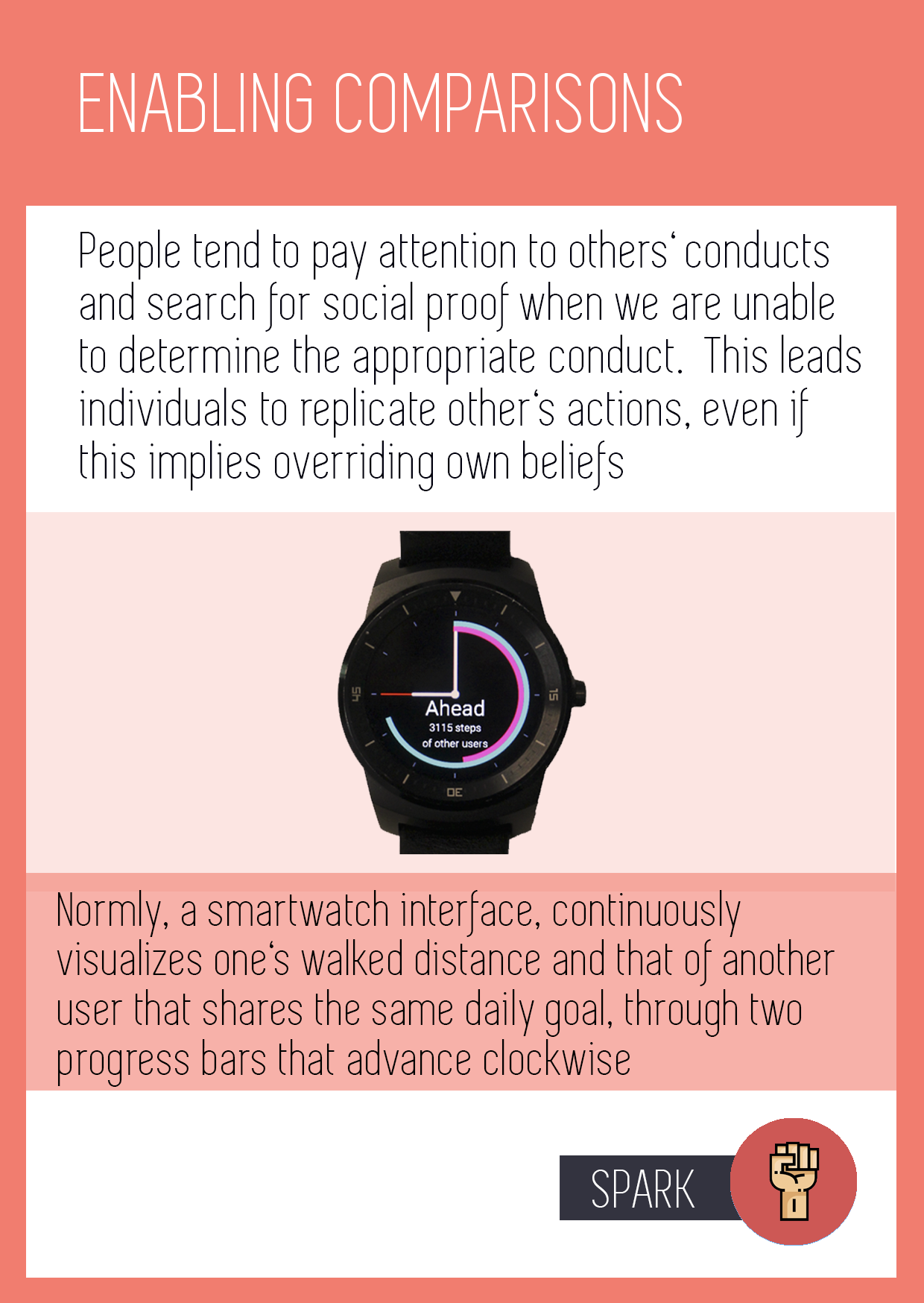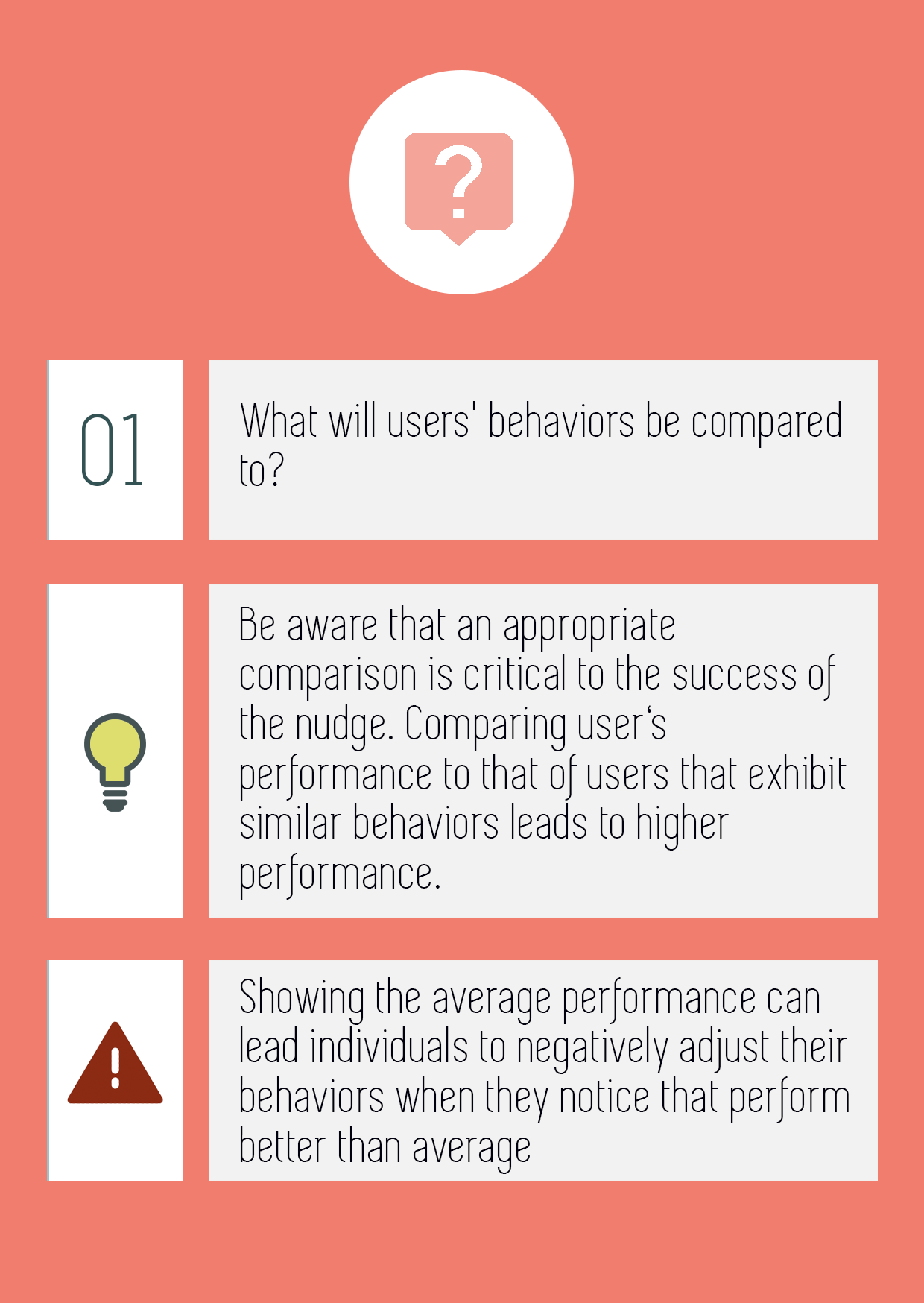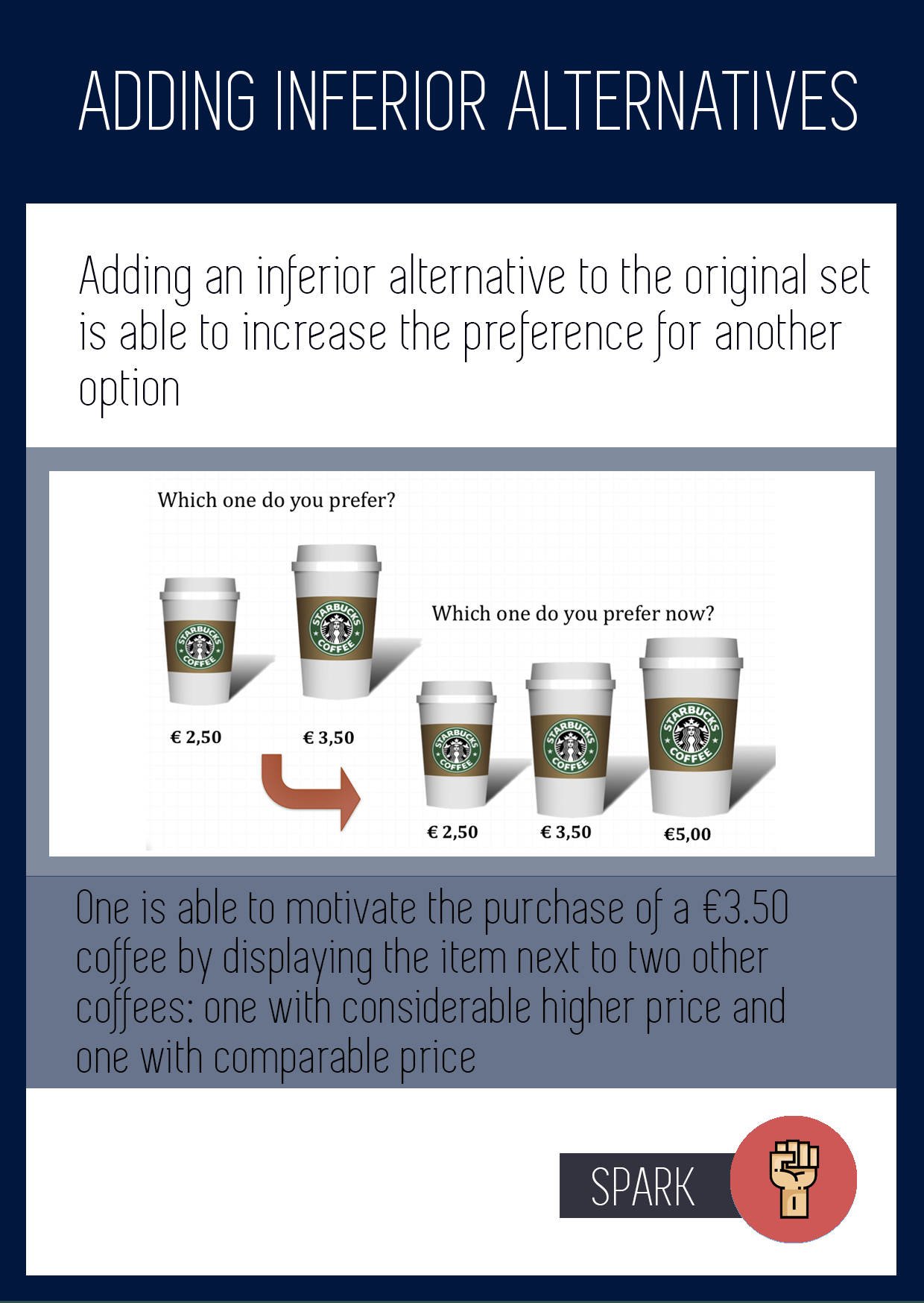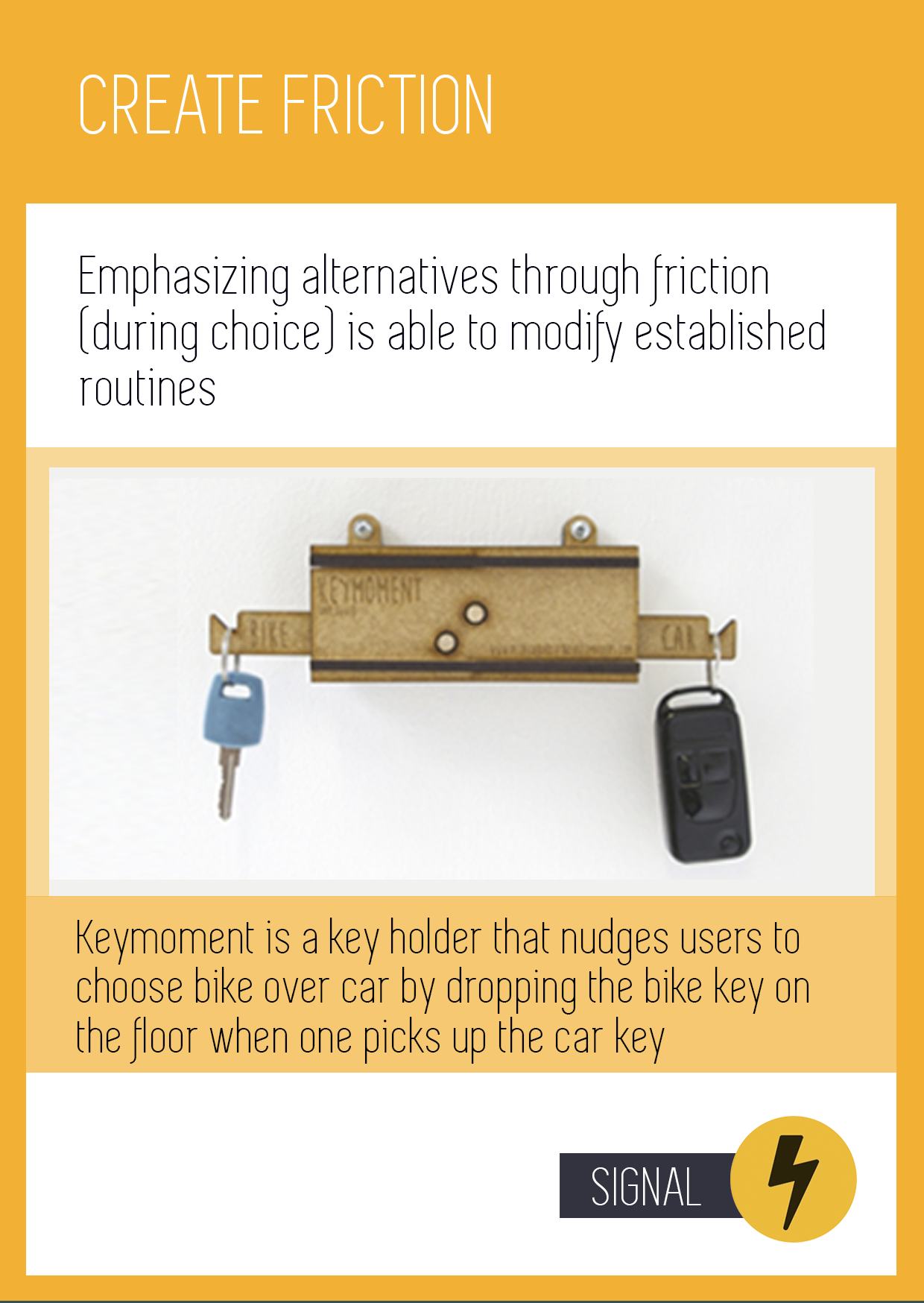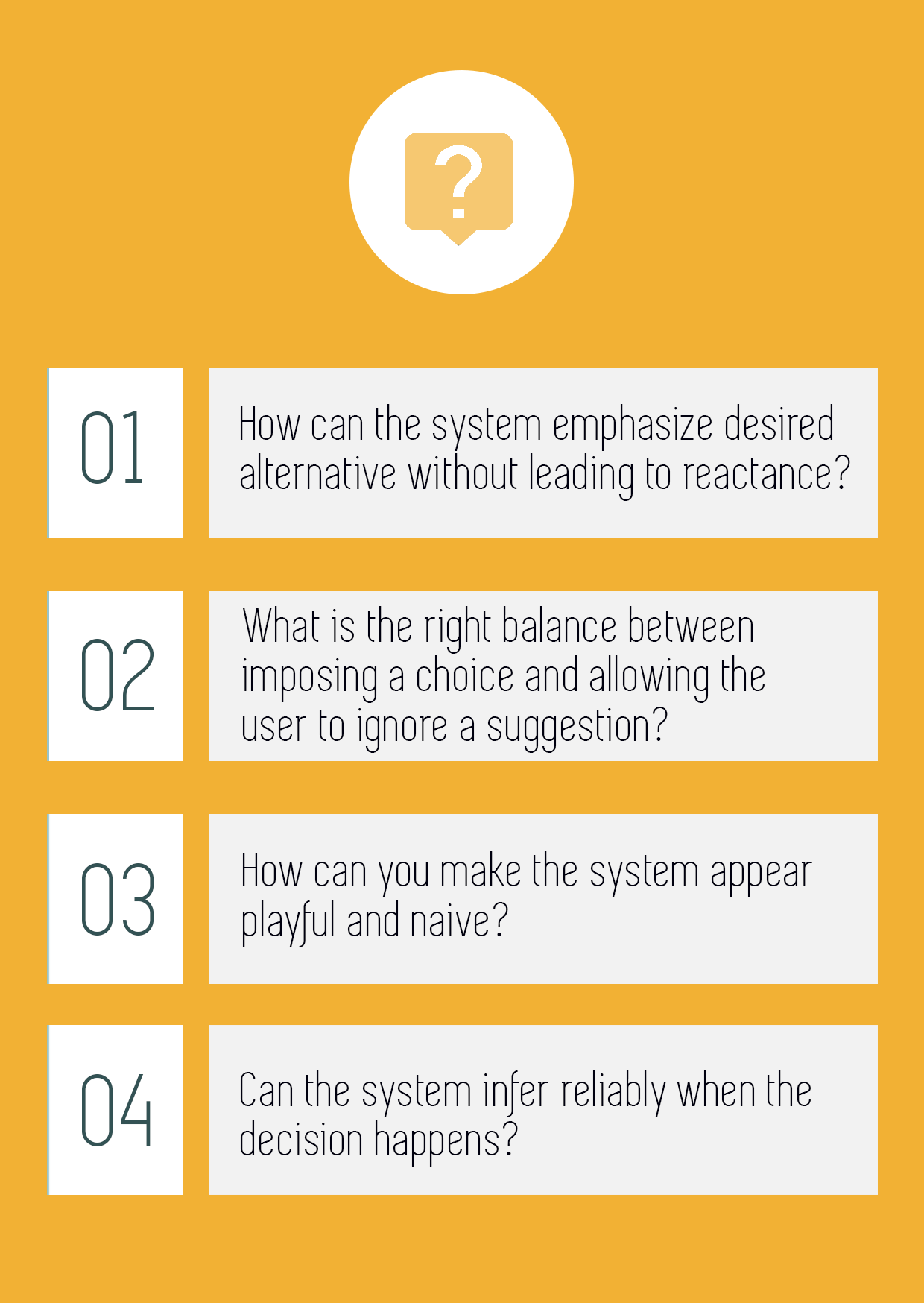The Deck
The Nudge Deck consists of 32 double-sided cards: 3 trigger cards, 23 mechanism cards and 6 category cards.
- 23 Mechanisms cards each presenting one of the 23 ways to nudge. The front-side of the card provides a definition of the mechanism along with a pictured example. The back-side of the card lists design considerations, such as questions, suggestions and hints that aim to trigger discussion.
- 3 Trigger cards clustering nudge mechanisms into Fogg's three types of triggers. Facilitators increase individuals’ ability to perform a behaviour, Sparks increase individual’s motivation and Signals act as a reminder.
- 6 Category cards clustering nudge mechanisms into six categories – Facilitate, Confront, Deceive, Social Influence, Fear and Reinforce.
